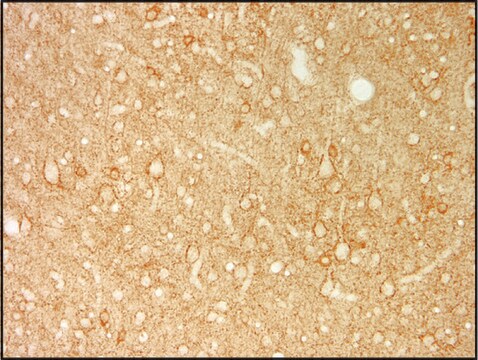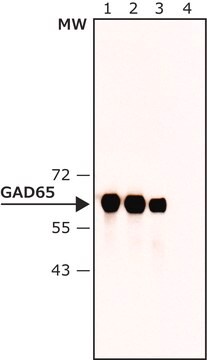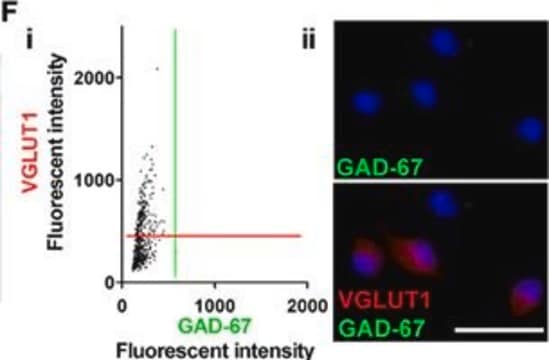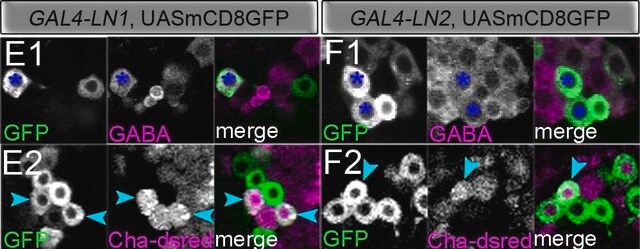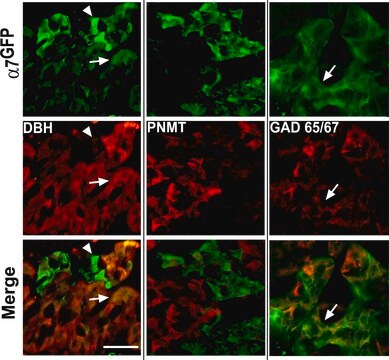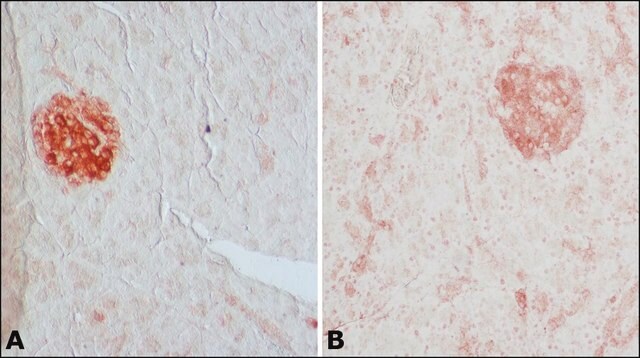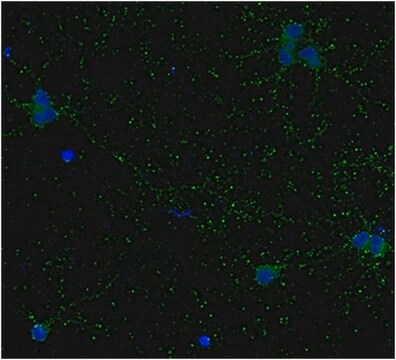G1166
Monoclonal Anti-Glutamic Acid Decarboxylase 65 antibody produced in mouse
clone GAD-6, purified immunoglobulin, buffered aqueous solution
Synonym(s):
Anti-GAD 65
About This Item
Recommended Products
biological source
mouse
Quality Level
conjugate
unconjugated
antibody form
purified immunoglobulin
antibody product type
primary antibodies
clone
GAD-6, monoclonal
form
buffered aqueous solution
species reactivity
mammals (and some lower vertebrates)
technique(s)
immunohistochemistry: 1:100-1:500
western blot: 1:1,000-1:5,000
isotype
IgG2a
shipped in
dry ice
storage temp.
−20°C
target post-translational modification
unmodified
Gene Information
human ... GAD2(2572)
mouse ... Gad2(14417)
Specificity
Immunogen
Physical form
Preparation Note
Disclaimer
Not finding the right product?
Try our Product Selector Tool.
Storage Class Code
12 - Non Combustible Liquids
WGK
WGK 1
Flash Point(F)
Not applicable
Flash Point(C)
Not applicable
Certificates of Analysis (COA)
Search for Certificates of Analysis (COA) by entering the products Lot/Batch Number. Lot and Batch Numbers can be found on a product’s label following the words ‘Lot’ or ‘Batch’.
Already Own This Product?
Find documentation for the products that you have recently purchased in the Document Library.
Our team of scientists has experience in all areas of research including Life Science, Material Science, Chemical Synthesis, Chromatography, Analytical and many others.
Contact Technical Service